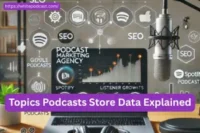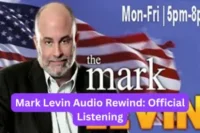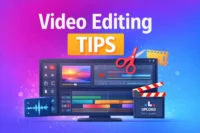What You Need to Start a Podcast: Beginner’s Guide
Published: 31 Oct 2025
Starting a podcast can be exciting, but knowing what you really need is key. From microphones to software, this guide covers all the essentials to help beginners launch their first episode quickly and confidently.
From microphones to software, this guide covers all the essentials to help beginners launch their first episode quickly and confidently.

Essential Equipment for Your Podcast
Before recording, having the right equipment ensures your audio is clear and professional. Beginners often overlook simple tools, but these basics make a big difference.
Microphone
- A good microphone is the heart of your podcast.
- USB microphones are beginner-friendly and easy to connect directly to your computer.
- XLR microphones provide higher quality but require an audio interface.
- Popular beginner options: Blue Yeti, Audio-Technica ATR2100x, Rode NT-USB.
Headphones
- Over-ear headphones are best to monitor your recordings.
- They help catch background noise, echo, or uneven volume.
- Affordable options: Audio-Technica ATH-M20x, Sony MDR-7506.
Computer / Recording Setup
- Any modern computer can handle recording, but make sure it has enough RAM and storage.
- Use external hard drives if planning long episodes or large audio files. podcast to mp3 download
Optional Equipment
- Audio Interface: Needed for XLR microphones; converts analog signals to digital.
- Mixer: Useful if you plan to add music, multiple microphones, or live interviews.
- Pop Filter & Mic Stand: Reduce plosives (hard “p” or “t” sounds) and maintain consistent audio quality.
Software & Tools You Need
Even with the best equipment, software determines the final quality of your podcast.
Recording & Editing Software
- Audacity: Free, beginner-friendly, supports multi-track editing.
- GarageBand: Free on Mac, easy to use, great for solo podcasters.
- Adobe Audition: Professional software with advanced editing features.
Hosting Platforms
- A hosting platform stores and distributes your podcast to directories like Spotify, Apple Podcasts, and Google Podcasts.
- Beginner-friendly platforms: Buzzsprout, Anchor, Podbean.
Editing Tools & Plugins
- Noise reduction plugins improve clarity.
- Compression tools maintain consistent volume. starting a podcast
- Music and intro/outro tracks enhance listener engagement.
Planning Your Podcast
Planning is key to creating episodes your audience will love. A little preparation goes a long way!
1️⃣ Choose Your Niche & Audience
- 🎯 Pick a Focus: Decide the main theme of your podcast.
- 👥 Know Your Listeners: Understand your target audience to craft content they’ll enjoy.
- 💡 Example Niches: Business tips, tech news, storytelling, interviews.
2️⃣ Decide Your Podcast Format
- 🗣 Solo Episodes: Share your insights or stories alone.
- 🎤 Interview Style: Host guests and explore topics together.
- 👥 Panel / Roundtable: Multiple hosts discuss ideas, opinions, or trends.
3️⃣ Structure Your Episodes
- ✨ Intro: Start with a brief, engaging introduction.
- 📚 Main Content: Organize ideas into clear sections.
- 🔔 Call-to-Action: Encourage listeners to subscribe, review, or follow on social media.
4️⃣ Naming & Cover Art
- 🏷 Memorable Name: Choose a name that’s easy to remember and describes your show.
- 🎨 Eye-Catching Cover Art: Your cover is the first impression in directories — make it visually appealing.
- 🛠 Tools to Use: Canva, Adobe Express. whats the difference between podcast and interview
Recording & Publishing Tips
- 🔇 Record in a quiet space to avoid background noise.
- 🛋 Use soft furnishings or blankets to reduce echo.
- ✂️ Edit your audio to remove mistakes and long pauses.
- 🎚 Normalize volume for consistent sound levels.
- 💾 Export files in MP3 format for maximum compatibility.
- 📤 Upload episodes to your hosting platform (e.g., Buzzsprout, Anchor).
- 📲 Submit to directories like Spotify, Apple Podcasts, and Google Podcasts.
Promoting Your Podcast
Promotion is key to growing your audience. Even the best podcast won’t get noticed without sharing it strategically.
Quick Tips:
- 📱 Share episodes on social media (Instagram, Twitter/X, Facebook).
- 🎥 Create audiograms or short clips to grab attention.
- 🤝 Collaborate with other podcasters for cross-promotion.
- 🌐 Embed audio on your website or blog posts.
- 📝 Offer transcripts for accessibility and SEO benefits.
Monetization Tips for Beginners
- Once your podcast gains listeners, consider monetizing:
- Sponsorships: Partner with brands related to your niche.
- Affiliate Marketing: Recommend products and earn a commission.
- Merchandise & Paid Content: Sell branded items or exclusive episodes.
- Listener Donations: Platforms like Patreon support recurring contributions.
- Secondary Keywords: monetize a podcast, make money podcasting, podcast sponsorships
Common Mistakes to Avoid
- Ignoring audio quality: poor sound can lose listeners quickly.
- Publishing irregularly: consistency builds audience trust.
- Skipping editing: raw audio can be hard to follow.
- Not promoting episodes: even great content needs marketing.
Essential Tips for Podcast Success
- Start small: focus on quality over quantity.
- Engage your audience: respond to comments or emails.
- Keep learning: listen to successful podcasts and adopt new techniques.
- Track analytics: understand what works and improve future episodes.
- LSI Keywords: podcast tips, beginner podcast advice, successful podcasting
Checklist: What You Need to Start Your Podcast
- Equipment: Microphone, headphones, optional mixer/interface, pop filter
- Software: Recording & editing tools, hosting platform
- Planning: Niche, target audience, format, episode structure
- Recording & Publishing: Quiet environment, edited audio, submitted to directories
- Promotion: Social media, website, cross-promotion, SEO-friendly transcripts
Tips for Growing and Improving Your Podcast
Once your podcast is live, the next step is to focus on growth and improving quality. Many beginners make the mistake of thinking “publish and wait,” but consistent effort will make a big difference.
Be Consistent
- Release episodes on a regular schedule (weekly, bi-weekly, or monthly).
- Consistency helps build trust with your audience and encourages subscriptions.
Engage Your Audience
- Ask listeners for feedback through social media or email.
- Respond to comments and questions — this creates a loyal community.
Keep Learning
- Listen to successful podcasts in your niche.
- Take notes on their style, structure, and promotion techniques.
- Experiment with your format to see what resonates with your audience.
Optimize Your Content
- Use descriptive titles and show notes for each episode.
- Include keywords in your descriptions to improve discoverability in podcast directories.
- Add timestamps to help listeners skip to the parts they like most.
Invest in Small Upgrades Over Time
- Start simple, but gradually improve your equipment or editing software.
- Better audio quality and professional touches can attract more listeners. starting a podcast
Promote Smartly
- Share episodes across multiple platforms and in relevant online communities.
- Consider partnerships, guest interviews, or collaborations to reach new audiences.
Track Your Progress
- Monitor download numbers, listener retention, and feedback. podcast name generator
- Adjust your content strategy based on what works and what doesn’t.
Q1: How much does it cost to start a podcast?
A: Basic setup can start under $100, while professional gear may cost $300‑$500+.
Q2: How long should my first episode be?
A: Beginners can aim for 15‑30 minutes; focus on quality and content value.
Q3: Do I need prior experience to start?
A: No! Beginners can learn as they go; focus on preparation, tools, and consistency.
Question: Which of the following is NOT essential when starting a podcast?
A) A microphone
B) A hosting platform
C) A podcast cover art
D) A full studio with multiple cameras
Answer: D) A full studio with multiple cameras
Explanation: While a microphone, hosting platform, and cover art are essential for launching a podcast, a full studio with cameras is not necessary — you can start with a simple setup and upgrade later!

- Be Respectful
- Stay Relevant
- Stay Positive
- True Feedback
- Encourage Discussion
- Avoid Spamming
- No Fake News
- Don't Copy-Paste
- No Personal Attacks

- Be Respectful
- Stay Relevant
- Stay Positive
- True Feedback
- Encourage Discussion
- Avoid Spamming
- No Fake News
- Don't Copy-Paste
- No Personal Attacks






